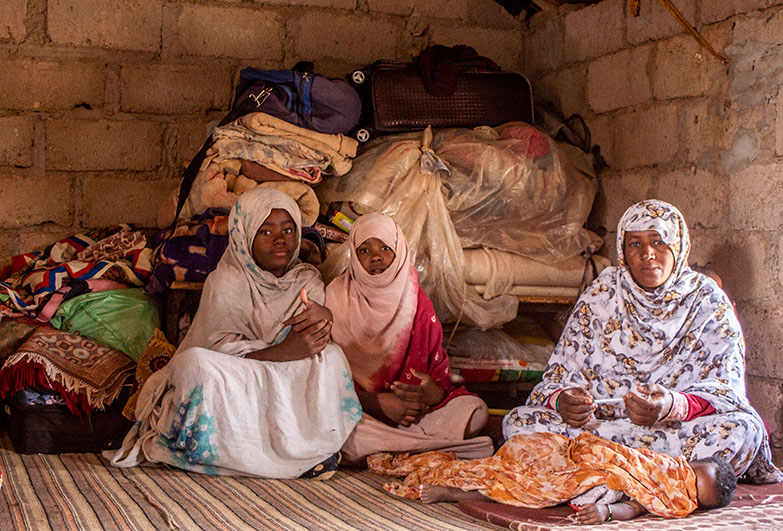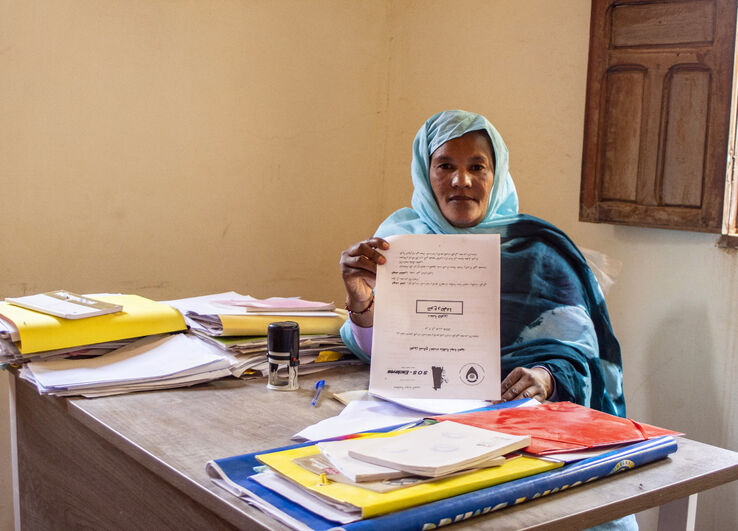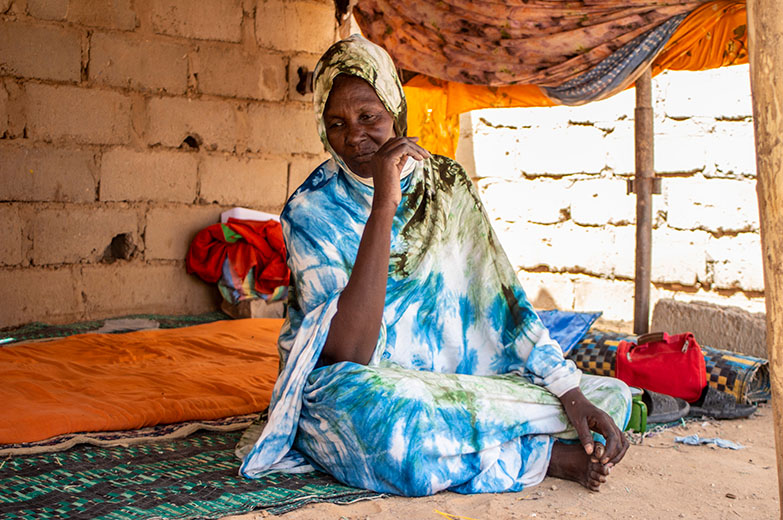No one should ever be born into slavery. Unfortunately, in West Africa, including in Mauritania, a system of descent-based slavery still exists where people are born into slavery and are subjected to a lifetime of exploitation.
This International Day for the Abolition of Slavery, we are spotlighting the incredible work being achieved with our partners in Mauritania to end slavery and support women to thrive in freedom. We are working towards a world in which nobody will be born into slavery.

What is the International Day for the Abolition of Slavery?
“The International Day for the Abolition of Slavery, 2 December, marks the date of the adoption, by the General Assembly, of the United Nations Convention for the Suppression of the Traffic in Persons and of the Exploitation of the Prostitution of Others (resolution 317(IV) of 2 December 1949).
The focus of this day is on eradicating contemporary forms of slavery, such as trafficking in persons, sexual exploitation, the worst forms of child labour, forced marriage, and the forced recruitment of children for use in armed conflict.”
Excerpt from the UN.
Our work in Mauritania

We work closely with our partner, SOS Esclaves, to support people in descent-based slavery to build new lives in freedom. Together, we work collaboratively for a world in which nobody experiences the horrors of slavery.
To truly tackle slavery and work towards a world where everyone is free from slavery, we need to understand why slavery persists in the countries where we work. In Mauritania, this means asking what factors make people vulnerable to descent-based slavery, what allows “masters” to retain control over the people they exploit, what anti-slavery laws are in place and how these are implemented and enforced. We work with our partners to plan the most effective campaigns possible, so we can make sure that no more children are born into slavery and that people who have managed to free themselves from slavery can build new lives for themselves, in freedom.
Thriving in freedom: Tahya’s story

Tahya used to live in the Tagant region with her masters. She was expected to do all their domestic work, tend to their livestock and fetch water along with other domestic tasks. It was an extremely hard life. Tahya remembers the suffering she endured. When she was too tired to work, her masters would beat her. They were cruel and only gave her leftovers to eat. She had been thinking about fleeing her masters for a long time, but she finally made the decision to do it about ten years ago. One day, after taking the herd of goats to another camp, she fled, walking all the way to another village. From there, she travelled to Nouakchott – the capital city – where she met other people from the Tagant region. Her journey had been difficult, and even when she made it to somewhere she thought she would be safe, it turned out to be the home of her former master’s relatives. They wanted to return Tahya to her master, but she managed to escape again.
She was helped by another family who arranged for her to go to where she had family. There, she was reunited with her mother and met with the coordinator of SOS Esclaves, who offered her their support. Tahya now has a new life there. She got married and had three more children. She has also joined a network of formerly enslaved people and attends awareness meetings. Tahya hopes to get her own house and some money to start a small business. She currently lives with one of her children and owns a plot of land. With the continued support of SOS Esclaves, Tahya has been able to build a life for herself in freedom.
What we want to see and how we can achieve it
With SOS Esclaves, we are working with local communities, including women mentors, to support women like Tahya to thrive in freedom. Through psychosocial support, basic vocational training such as running a small business, and numeracy training, survivors are supported to gain the knowledge and skills needed to start a livelihood. Survivors are also supported to obtain their civil status and recieve their identification documents, all vital to integration into society. Legal support is also provided, through paralegals and lawyers, to put the laws we have achieved into action! And with our advocacy, are seeing progress as societal norms are challenged and we see stronger enforcement of the anti-slavery protections enshrined in law.
Get involved
Find out more about our work and get involved.
Join the movement today